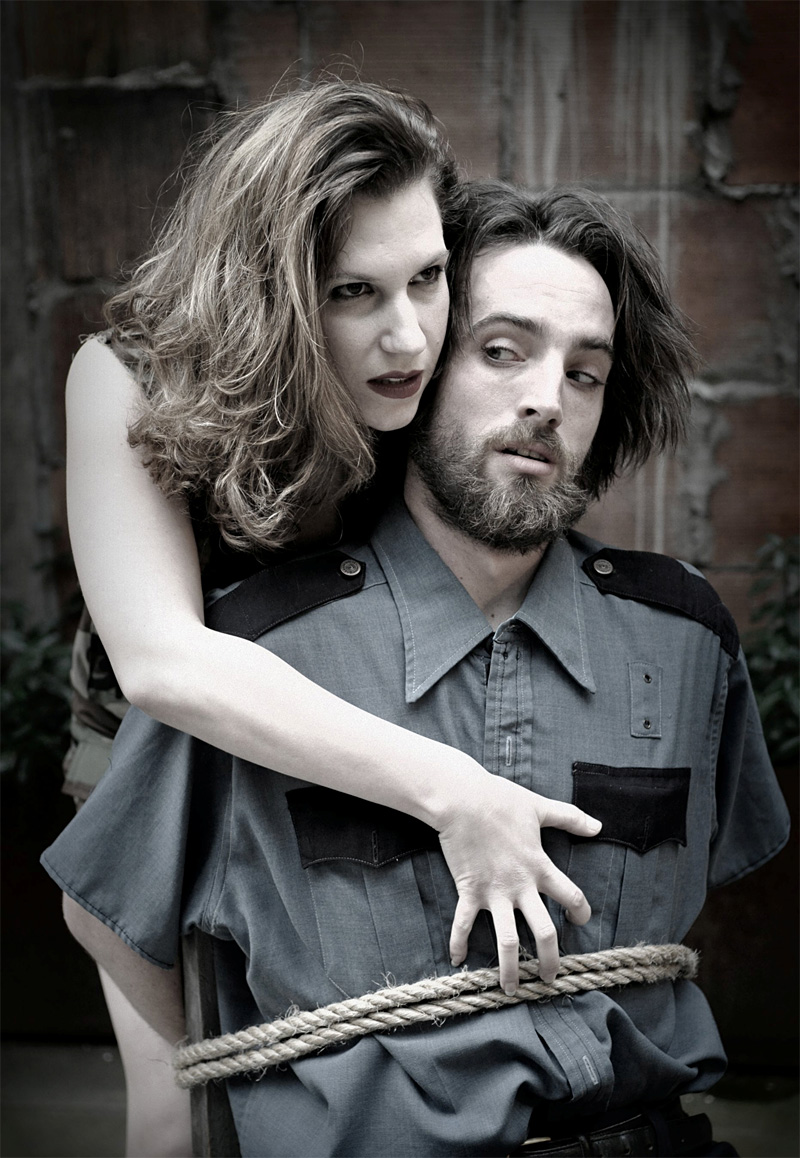Canadian outback humor is odd and oft-mined territory, but Balagan’s production of Claudia Dey’s endearingly perverse Trout Stanley strikes some wonderful new deposits.
Ill-starred fraternal twins Sugar and Grace inhabit a tidily ramshackle cottage beside a dump in northern British Columbia. Like some siblings who live together as adults (e.g., the Collyer brothers or the Wards in the documentary Brother’s Keeper), their evolution as individuals is curiously arrested. Indeed, almost everything is. On their 30th birthday, phobic recluse Sugar (Angela DiMarco) still wears the tracksuit her mother died in 10 years earlier. Gunslinging bombshell Grace (Sarah Budge) obsesses about her own image on a local billboard. Both are virgins, and their ritualistic dialogue and behavior resemble an unconsummated marriage. Enter the shaggy, animalistic traveler Trout Stanley (Ryan Higgins). He instantly falls for Sugar, and, btw, might be a serial killer.
Kooky can be a trap, but the cast—especially DiMarco—puts a fresh stamp on the whimsical play (first produced off-Broadway in 2006). With an infinitely protean face that seems at once hyper-human and slightly alien, DiMarco makes Sugar the more emotionally transparent and compelling sister. Unlike Grace, she hasn’t been hardened by contact with the outside world. Miraculously, Trout hasn’t either—unless his innocence is just an act. The gangly Higgins has gigantic, intense blue eyes set in a hairy but childlike face, which plausibly work their magic on her (along with his passionate, encyclopedic description of snail lovemaking).
Grace, motivated by suspicion and jealousy, naturally distrusts Trout, and she begins testing him in increasingly brutal ways. She’s provocatively opaque, perhaps also capable of killing.
All this transpires on a single set whose permeable outdoor feel—partial walls, a barbecue instead of a range, a cooler instead of a fridge—magnifies the sisters’ sense of vulnerability. Except for the boots and sexy outfit Grace scored for posing on the billboard, virtually everything looks as if it predated the cataclysmic day their parents died.
Having recently departed from Theater Schmeater, director David Gassner makes some edgy choices for Balagan. Trout first enters the cottage like a fairy-tale animal, sniffing and devouring its contents. Later, when invited to visit, he’s quite normally human. This species of enchantment carried me past some confusion in the text: Amid the banter and plot twists, I often lost track of who the killer was supposed to be. But overall, these “Huh?” moments were greatly outnumbered by “Ha!” moments. Trout Stanley is a clever, heartfelt, funky little web well worth the ensnarement.








